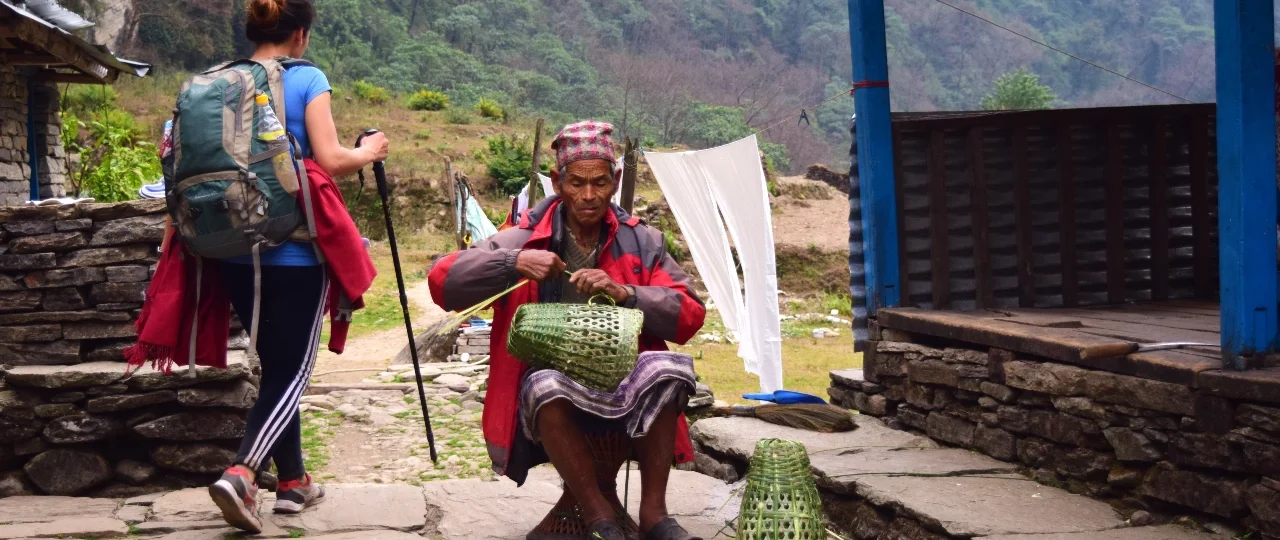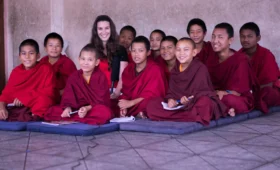Nepal, with its majestic Himalayan landscapes and diverse cultures, has long been a mecca for trekkers and adventurers from around the world. However, as the world becomes more environmentally conscious, the need for sustainable and responsible tourism practices is more critical than ever. In this blog post, we will explore the concept of eco-trekking in Nepal, focusing on how it aligns with responsible tourism and the steps you can take to ensure your trek has a positive impact on the environment and local communities.
The Essence of Eco-Trekking
Eco-trekking, often known as environmentally friendly or green trekking, is about exploring the natural beauty and cultural heritage of Nepal while minimizing the negative impact on the environment. This approach is centered around three key principles:
- Environmental Conservation: Eco-trekking emphasizes the protection of Nepal’s fragile ecosystems, including its forests, wildlife, and water sources. It encourages trekkers to follow established trails, avoid littering, and carry out any waste they generate.
- Cultural Respect: Respecting the customs and traditions of local communities is an essential part of eco-trekking. It fosters positive interactions between trekkers and the people who call the Himalayas home. Trekkers are encouraged to learn about local customs, ask for permission before taking photographs, and purchase local products to support the economy.
- Sustainable Practices: Eco-trekking promotes sustainable practices by encouraging the use of eco-friendly lodges and teahouses. These accommodations focus on minimizing their environmental footprint through responsible waste management, efficient energy use, and water conservation.
The Impact of Eco-Trekking
Eco-trekking has a significant impact on Nepal’s environment, culture, and economy:
- Conservation: By adhering to eco-trekking principles, you contribute to the preservation of Nepal’s natural beauty and biodiversity. This, in turn, ensures that future generations can enjoy these incredible landscapes.
- Empowerment: Eco-trekking helps empower local communities economically. Staying in local teahouses and buying handicrafts from local artisans provides a sustainable source of income for the residents of trekking regions.
- Cultural Exchange: Engaging respectfully with local communities allows you to learn about their cultures and traditions. It fosters a sense of goodwill and mutual understanding.
Tips for Eco-Trekking in Nepal
- Choose Eco-Friendly Lodges: Opt for teahouses and lodges that follow sustainable practices. These accommodations are conscious of their impact on the environment and often have systems in place to minimize waste and conserve resources.
- Pack Light: Carrying minimal gear reduces the strain on porters and minimizes the environmental impact. Packing efficiently also supports responsible tourism.
- Leave No Trace: Follow the “leave no trace” philosophy by packing out all your waste, disposing of trash responsibly, and refraining from picking plants or disturbing wildlife.
- Respect Local Customs: Learn about the local customs and traditions of the regions you visit. Ask for permission before taking photographs and engage respectfully with the local people.
- Support Local Communities: Buy locally made products and services, which directly contribute to the economic well-being of the communities you visit.
Eco-trekking in Nepal is a transformative experience that allows you to connect with the country’s awe-inspiring nature and rich culture while minimizing your impact on the environment. By practicing responsible tourism, you can be a part of preserving Nepal’s natural treasures for generations to come. Real Journey Nepal is committed to promoting eco-trekking, and we invite you to join us in making a positive difference in the Himalayas. Together, we can create lasting memories and protect this remarkable land we are privileged to explore.



